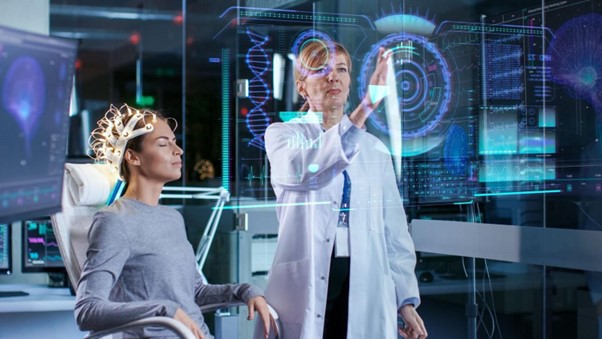The Role of Artificial Intelligence in disease diagnosis and treatment
In the modern world, artificial intelligence plays a crucial role in various fields, and medicine is no exception. AI is a field of computer science aimed at creating programs and algorithms capable of performing tasks that require human intelligence.
When it comes to modern medicine, the role of artificial intelligence is rapidly growing, and the development of custom healthcare software development is becoming increasingly popular. In this article, in collaboration with experts from Light IT Global, we will explore the role of artificial intelligence in disease diagnosis and treatment.
Role of AI in disease diagnosis
Artificial intelligence is making breakthroughs in disease diagnosis, providing medical professionals with new tools for accurate and efficient work. Let’s consider some specific mechanisms.
AI in medical image analysis. The use of AI in analyzing medical images, such as X-rays, MRIs, and CT scans, improves the accuracy of detection and classification of various conditions. Machine learning algorithms can process large volumes of data and identify patterns that are not obvious to the human eye. This enables, for example, early detection of cancer, and contributes to successful and timely treatment.
AI systems in diagnosing specific diseases. In the field of oncology, AI helps diagnose tumors, accurately determining their sizes and stages of development. Systems like IBM Watson Oncology are used to analyze medical information and support clinical decision-making, offering treatment options based on a vast array of scientific data.
AI in early detection and predictive diagnosis. Early detection of diseases such as diabetes or cardiovascular disorders becomes possible thanks to AI algorithms that analyze historical medical data and patient samples. They identify disease risks before the onset of symptoms, enabling preventive treatment and the avoidance of more serious complications.
Thus, AI becomes an indispensable tool in medical diagnostics, improving the ability to detect diseases early and classify them accurately. This not only increases the chances of successful treatment but also contributes to the transition to a more predictive and personalized medical practice.
The use of AI in disease treatment

Artificial intelligence plays a key role in improving treatment methods, providing innovative solutions, and enhancing outcomes for patients. Let’s explore how AI contributes to the development of treatment techniques and personalized medicine.
Automation of treatment assignment processes
AI can analyze large volumes of medical data, helping doctors select the most effective treatment methods for each patient. AI systems consider medical history, genetic predisposition, and other individual factors, offering tailored treatment plans for each person.
Development of new drugs
Artificial intelligence also plays a significant role in the pharmaceutical industry, speeding up the process of discovering and developing new drugs. It can reduce the time and costs of clinical trials by predicting the potential effectiveness and safety of medical drugs.
Personalized medicine and targeted therapy
AI contributes to the development of personalized medicine, where treatment and disease prevention are individually tailored to each patient. The system analyzes genetic information, helping doctors develop personalized treatment plans targeting specific molecular disease mechanisms.
The use of AI in disease treatment opens up new horizons for medical science and practice, promising more effective, safe, and personalized treatment, taking into account the unique characteristics of each patient.
How AI affects the quality and accessibility of healthcare

According to the Light it experts, artificial intelligence has a significant impact on improving the quality and accessibility of healthcare. This impact manifests itself in various aspects of healthcare.
- Improving the quality of diagnosis and treatment.
AI can process large volumes of medical data with high accuracy and speed, leading to more accurate diagnostics and effective treatment.
- Reducing diagnosis and treatment time
AI automates many processes in medical practice, from analyzing laboratory results to supporting clinical decision-making. This reduces the time needed for diagnosis and treatment, allowing healthcare workers to focus more on direct patient care.
- Expanding access to healthcare services
AI plays a key role in providing access to healthcare services in remote and underserved areas. Telemedicine, supported by AI, allows doctors to diagnose and treat patients remotely, which is especially important for areas with limited resources and a shortage of specialists.
- Optimizing the distribution of healthcare resources
The use of AI in healthcare resource management contributes to more efficient distribution and use of medical personnel, equipment, and medications. Data analysis with AI can help predict disease outbreaks, optimize hospital loads, and improve the logistics of medical supplies.
In conclusion, the role of artificial intelligence in modern medicine lies in improving diagnostic accuracy, developing personalized treatment methods, and analyzing large volumes of medical data to improve healthcare and the quality of life for patients.
Over the years, Light It has implemented numerous unique projects, including for medical institutions of various scales operating worldwide. Contact us, and our company’s specialists will develop an adapted digital transformation strategy that will contribute to achieving the goals of your organization!

